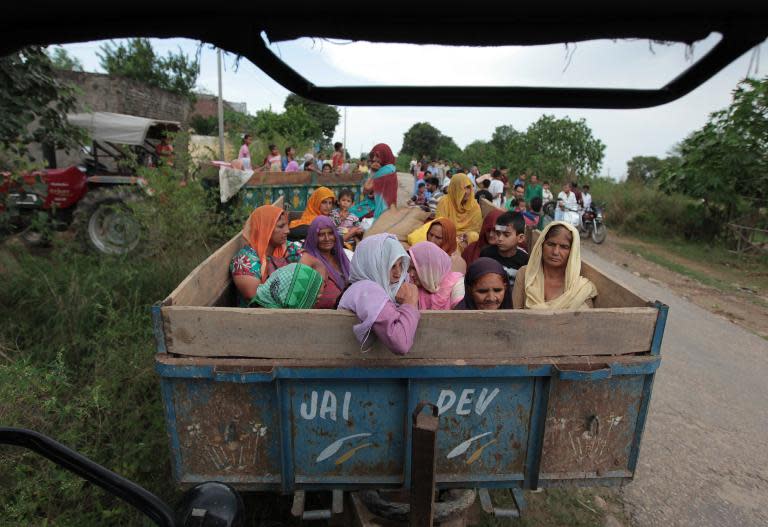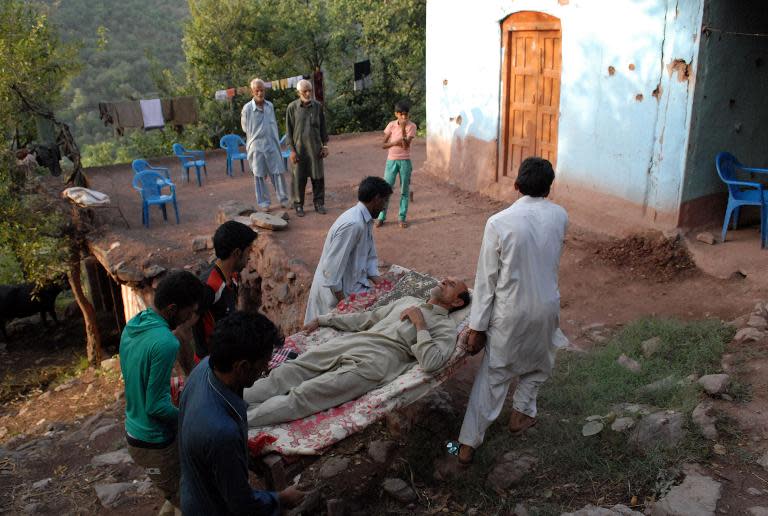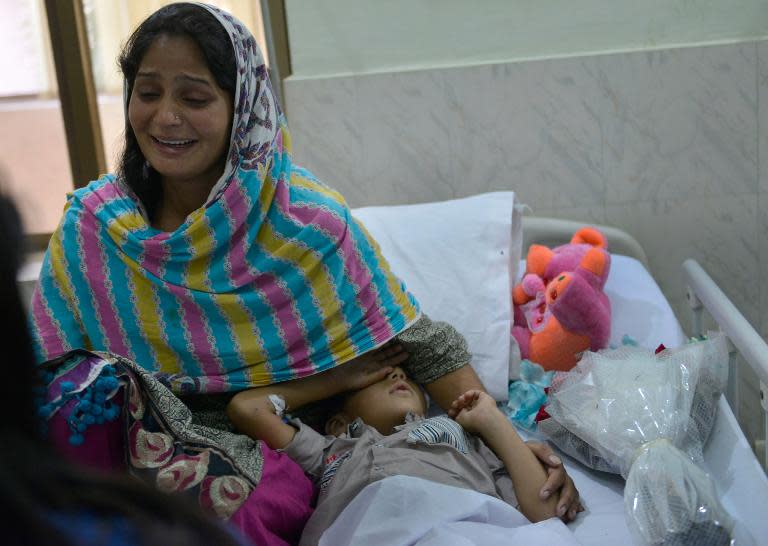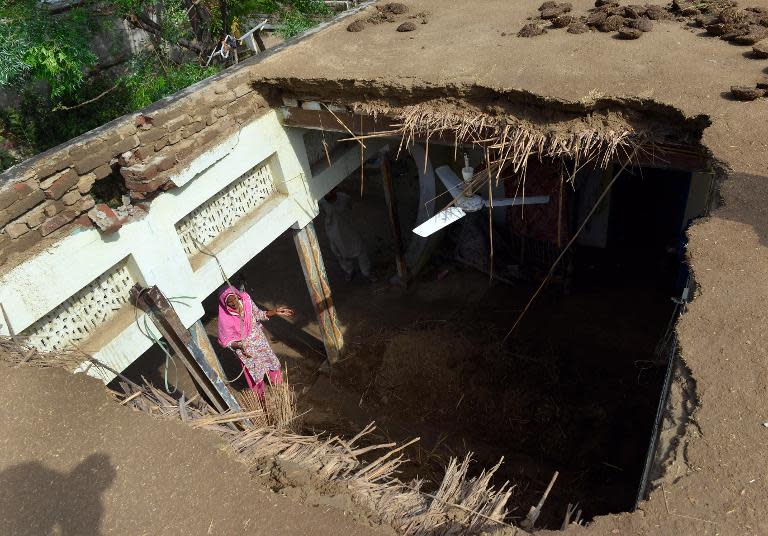India warns Pakistan over Kashmir strikes as toll hits 17
India told Pakistan on Thursday to stop shelling disputed Kashmir, warning it will make such attacks "unaffordable" for Islamabad as the death toll from this week's cross-border violence rose to 17. Defence Minister Arun Jaitley accused Pakistan of instigating the tit-for-tat shelling that began on Sunday, forcing tens of thousands on both sides of the border to flee the worst violence there in years. "If Pakistan persists with this adventurism, our forces will make (the) cost of this adventurism unaffordable for it," Jaitley told journalists in New Delhi. "Pakistan should stop this unprovoked firing and shelling if it wants peace on the border." UN chief Ban Ki-moon's spokesman urged the two sides to engage in dialogue to find "a long-term solution for peace and stability in Kashmir". "He deplores the loss of lives and the displacement of civilians on both sides," the spokesman said. Pakistan's army on Thursday confirmed five more civilians had died on its side of the disputed northern Kashmir region and eastern Punjab province, doubling the toll to 10. Seven civilians have died on the Indian side. The nuclear-armed neighbours have traded blame for the cross-border strikes, which began during Eid ul-Adha celebrations in the predominantly Muslim region. Pakistan's Defence Minister Khawaja Asif said his country was "fully capable of responding befittingly to Indian aggression" but urged India to exercise caution. "We do not want the situation on the borders of two nuclear neighbours to escalate into confrontation," he added. - 'Panic among the masses' - The latest crisis is being closely watched for signs that India's new right-wing nationalist government will take a more hardline approach to Pakistan. India, which has an estimated 500,000 troops deployed in its part of the disputed region, called off peace talks last month after Pakistan consulted with Indian Kashmiri separatists. New Prime Minister Narendra Modi said during a visit to New York last month that Pakistan needed to show more "seriousness" to resume dialogue between the historic adversaries. On Thursday Jaitley justified the Indian shelling by saying his country had a "duty to defend its people", accusing Pakistan of trying to "precipitate tension where none exists". Shaukat Ali, deputy commissioner of Kotli on Pakistan's side of the border, accused Indian forces of starting firing whenever there was a religious festival. "They do it to create panic among the masses which ultimately creates problems (for) the government here," he said. Kotli resident Sakhi Muhammad said local people were being forced to live under constant threat to their lives. "Our women cannot go out to bring water from the wells because they (Indian forces) target them whenever they venture outside their homes," he said. Kashmir is divided between India and Pakistan but both lay claim to the scenic Himalayan region. Fighting between Indian forces and rebels seeking independence or a merger of the territory with Pakistan has killed tens of thousands -- mostly civilians -- since 1989. The two countries have gone to war over the territory twice, in 1947 and 1965, and fought a smaller scaler conflict in 1999. Violence has fallen in the region since 2004, when the countries began a peace process a year after signing a ceasefire agreement. While the agreement has largely held, minor clashes occur regularly along the disputed border known as Line of Control (LOC) as well as along the internationally recognised frontier dividing Indian Kashmir from Pakistan's Punjab province. Indian security sources say this week's shelling has occurred along the internationally recognised border as well as the LoC. Ajai Sahni, executive director at the Institute of Conflict Management think-tank in Delhi, downplayed the significance of the latest exchanges of fire, which he said were "an annual ritual". "For them (Pakistan), it is basically seen as a last opportunity to push through as many infiltrators as possible before the onset of the bone-chilling winters," he told AFP. India has long accused Pakistan of violating the ceasefire pact to try to push armed rebels in from across the de-facto border. Pakistan maintains that it does its best to prevent incursions into India-administered Kashmir. Modi, a staunch right-wing nationalist, upped the rhetoric on Thursday in signs that the violence may not end soon. "Our soldiers have responded to the aggression with courage," he said in televised comments while addressing a public rally in the western Indian state of Maharashtra. "The enemy has realised that times have changed and their old habits will not be tolerated," he said, to loud cheers from the crowd.







